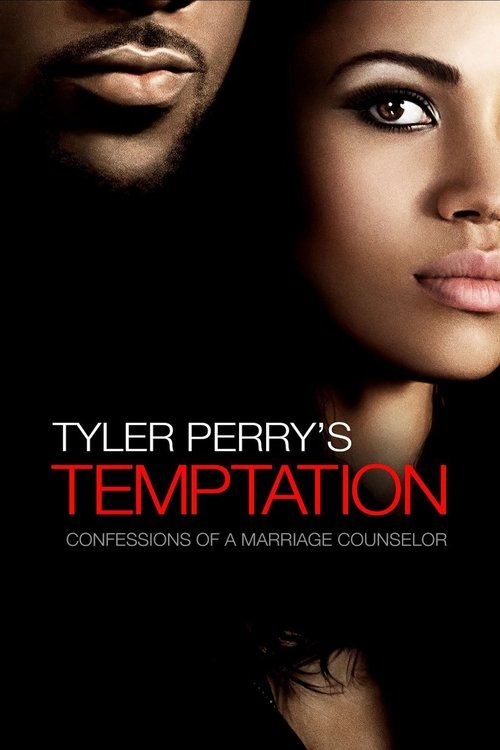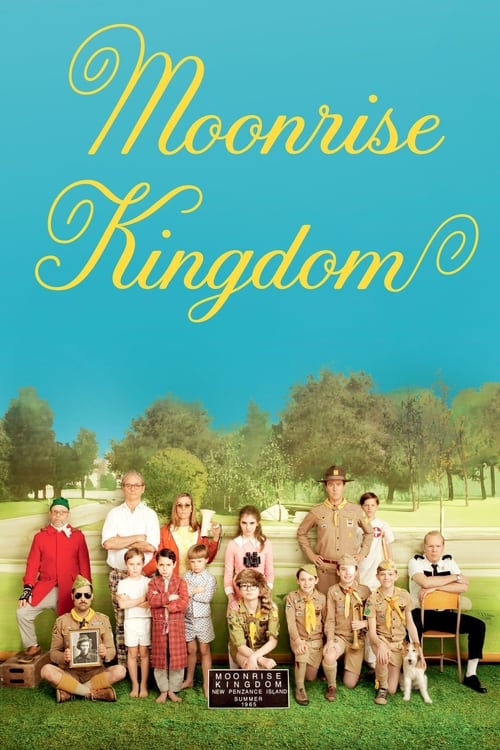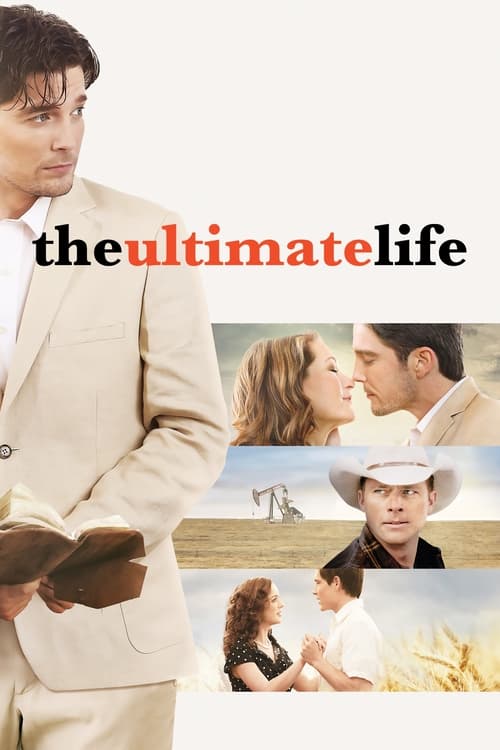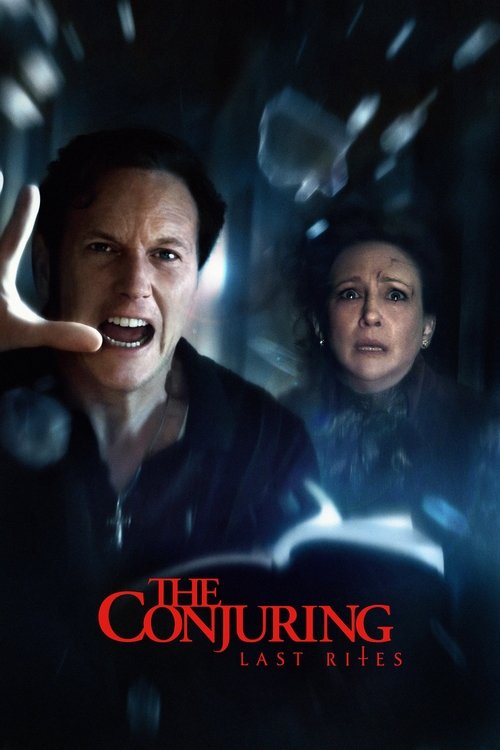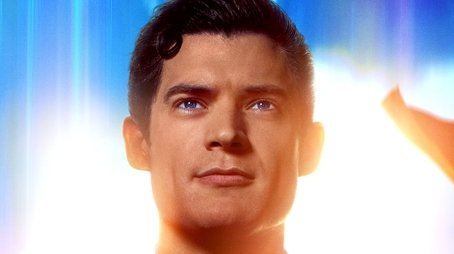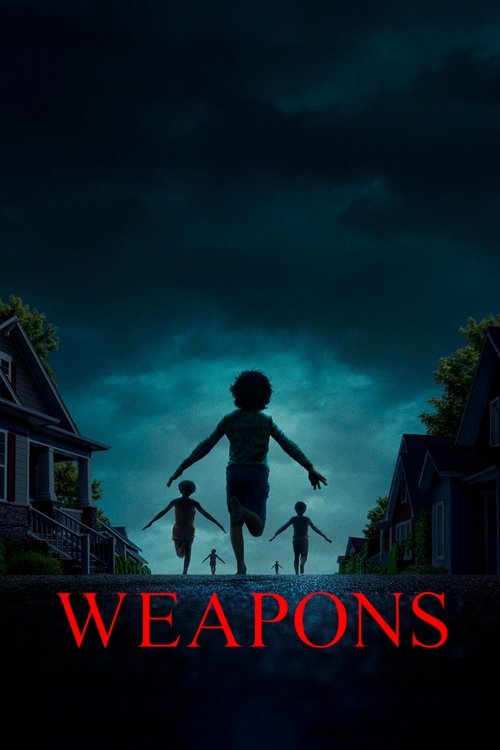
Ask Your Own Question
What is the plot?
In a drab, rundown government office, a marriage counselor sits across from a young couple, Bradley and Lisa. The tension in the room is palpable as Bradley abruptly stands and storms out, unwilling to engage in the session. Lisa remains, her eyes distant, carrying the weight of a secret. The counselor, perceptive and calm, senses Lisa's inner turmoil and the presence of another man in her life. To caution her, the counselor begins to recount the story of her own sister, Judith, a tale marked by love, temptation, betrayal, and devastating consequences.
Judith and Brice have known each other since childhood, their bond forged in the innocence of youth. They marry as teenagers, their love seemingly unbreakable. Judith pursues a career as a therapist, working at a high-profile matchmaking agency owned by Janice, while Brice becomes a pharmacist. Their modest home in Washington, D.C. is humble but filled with hope. However, beneath the surface, cracks begin to appear. Judith feels stifled in her job and dreams of starting her own marriage counseling practice, but Brice urges patience, citing their precarious financial situation.
One evening, Brice takes Judith to a $5.99 buffet restaurant, a symbol of their limited means. On their way home, a group of men catcall Judith. Brice's refusal to confront them leaves Judith feeling unprotected and disrespected. This moment sows seeds of dissatisfaction in Judith's heart. At work, Judith's world is starkly different--she is surrounded by stylish, confident colleagues, including her friend Ava, who encourages her to embrace a more modern, daring lifestyle. Judith, however, clings to her conservative values, instilled by her mother, Ms. Sarah, a devout and traditional woman who often reminds her daughter of the importance of faith, fidelity, and domestic duties.
Into Judith's life steps Harley, a wealthy and charismatic internet entrepreneur and social media mogul. He arrives at Janice's matchmaking agency as a potential investor, but his interest quickly shifts to Judith. Working late on matchmaking surveys, Harley probes Judith about her sex life, insinuating that it is dull and unfulfilling. Judith, initially firm in her beliefs against premarital sex and infidelity, begins to question her marriage and her desires. Harley's charm and persistence break down her defenses.
The tension escalates when Harley invites Judith on a business trip to New Orleans. The city's vibrant energy contrasts sharply with Judith's constrained life. On Harley's private plane, the atmosphere thickens with temptation. Despite her initial resistance, Judith succumbs to Harley's advances, and they have sex mid-flight--a moment charged with both exhilaration and guilt. After the encounter, Judith, overwhelmed, tells Harley, "Don't ever call me again." Yet Harley's manipulative persistence continues; he calls her repeatedly, blurring the lines between seduction and coercion.
Back home, Judith's marriage with Brice unravels further. Brice discovers that Judith has stopped cooking and attending church, a revelation he shares with Ms. Sarah during a tense dinner. Ms. Sarah's disapproval is palpable, her traditional values clashing with the reality of Judith's choices. Judith confronts Brice about their passionless sex life, demanding more excitement and intimacy. Brice's refusal to change or confront disrespectful men deepens the rift between them.
Harley's influence grows darker. He calls Judith during a football game night, mocking and seducing her simultaneously. Judith, torn between loyalty and desire, leaves Brice's home to meet Harley, marking a point of no return. Their affair continues in secret, with encounters in the backseat of luxury cars and other clandestine settings, each meeting pulling Judith further from her former life.
A devastating twist emerges when Judith learns that Harley was previously married to Melinda, a woman who contracted HIV from him due to his promiscuous lifestyle. This revelation casts a shadow over Judith's choices. Soon after, Judith herself tests positive for HIV, a life-altering consequence of her infidelity. The diagnosis shatters her world, forcing her to confront the irreversible damage wrought by temptation and betrayal.
Throughout these events, Brice remains unaware of the full extent of Judith's affair but senses the growing distance between them. The film does not depict any deaths, but the emotional and spiritual toll is profound. The confrontation between Judith and Harley culminates in a bitter, manipulative dynamic where Harley refuses to release Judith from his grasp, despite her pleas.
The story returns to the present in the government office, where the marriage counselor finishes her cautionary tale. She looks at Lisa with a mixture of empathy and warning, underscoring the dangers of temptation and infidelity. Lisa, visibly shaken, is left to reconsider her own path, the weight of Judith's tragic story pressing upon her.
The final scenes reinforce the moral lesson: fidelity, communication, and respect are the foundations of marriage, and the seductive allure of temptation can lead to irreversible consequences. Judith's life, once full of promise and love, is irrevocably altered by her choices, serving as a stark warning to those who might follow a similar path. The counselor's story closes the frame narrative, leaving the audience with a vivid portrait of passion, betrayal, and the high cost of temptation.
What is the ending?
In the ending of "Temptation: Confessions of a Marriage Counselor," Judith, after a tumultuous affair and a series of painful realizations, ultimately chooses to return to her husband, Brice. However, the emotional scars from her experiences linger, and she is left to confront the consequences of her actions. The film concludes with a sense of unresolved tension, as Judith grapples with her choices and the impact they have had on her life and relationships.
As the film approaches its conclusion, the narrative unfolds with Judith, played by Jurnee Smollett-Bell, in a state of emotional turmoil. After her affair with the wealthy and charming man, Harley, portrayed by Robbie Jones, she finds herself at a crossroads. The weight of her decisions begins to bear down on her, and she is forced to confront the reality of her actions.
Scene by scene, the tension escalates. Judith, who initially sought excitement and validation outside her marriage, begins to realize the depth of the pain she has caused. In a pivotal moment, she has a confrontation with Harley, where the allure of their relationship fades, revealing the emptiness that lies beneath the surface. Harley, who had once seemed like the answer to her dissatisfaction, becomes a reminder of her betrayal and the life she has jeopardized.
Meanwhile, Brice, played by Lance Gross, is depicted as a devoted husband who has been deeply hurt by Judith's infidelity. His journey throughout the film showcases his struggle to understand why Judith sought comfort elsewhere. In the final scenes, Brice's vulnerability is palpable as he grapples with feelings of betrayal and heartbreak. He is seen trying to piece together the remnants of their marriage, showcasing his desire to forgive and rebuild.
As Judith returns home, the atmosphere is thick with tension. The couple engages in a heartfelt conversation, where Judith expresses her remorse and acknowledges the pain she has inflicted on Brice. This moment is charged with raw emotion, as both characters confront the reality of their relationship. Judith's tears reflect her internal conflict, and Brice's stoic demeanor reveals his struggle to process the betrayal.
The film culminates in a scene where Judith and Brice attempt to reconnect, but the scars of infidelity linger. Judith's journey of self-discovery has left her changed, and while she seeks forgiveness, the path to healing is fraught with challenges. The ending leaves viewers with a sense of ambiguity, as Judith's fate is not entirely clear. She has returned to Brice, but the emotional fallout from her choices remains unresolved.
In the final moments, the camera lingers on Judith's face, capturing a mix of hope and uncertainty. The film closes with a poignant reminder of the complexities of love, trust, and the consequences of temptation. Each character is left to navigate their own emotional landscape, highlighting the film's exploration of the fragility of relationships and the enduring impact of choices made in moments of weakness.
Is there a post-credit scene?
The movie "Temptation: Confessions of a Marriage Counselor" does not have a post-credit scene. The film concludes with its final moments, focusing on the aftermath of the main character's choices and the impact on her life and relationships. The story wraps up without any additional scenes or content after the credits roll.
What motivates Judith to seek out a relationship with a younger man?
Judith, played by Jurnee Smollett-Bell, feels unfulfilled in her marriage to Brice, portrayed by Lance Gross. As a marriage counselor, she is dedicated to helping others but struggles with her own desires and dissatisfaction. The lack of passion and excitement in her marriage leads her to seek validation and excitement from a younger man, Harley, played by Robbie Jones. This relationship becomes a way for her to escape her mundane life and explore her own identity.
How does Brice react to Judith's infidelity?
Brice is initially devastated when he discovers Judith's affair with Harley. His emotional turmoil is palpable as he grapples with feelings of betrayal and heartbreak. Brice's reaction is a mix of anger, sadness, and confusion, as he tries to understand how the woman he loves could betray him. This leads to a series of confrontations where he expresses his pain and struggles to cope with the reality of their crumbling marriage.
What role does the character of Ava play in Judith's life?
Ava, played by Kim Kardashian, serves as Judith's best friend and confidante. She represents a more carefree and hedonistic lifestyle, often encouraging Judith to embrace her desires and take risks. Ava's influence is significant as she pushes Judith to explore her feelings for Harley, ultimately leading Judith down a path of temptation and infidelity. Ava's character embodies the allure of a life filled with excitement and the consequences that come with it.
What are the key turning points in Judith's relationship with Harley?
The key turning points in Judith's relationship with Harley occur when they first meet at the bar, where their chemistry is undeniable. As they begin to spend more time together, Judith's initial hesitations fade, leading to a passionate affair. A pivotal moment is when Judith chooses to prioritize her feelings for Harley over her marriage, marking a significant shift in her character. The relationship escalates quickly, showcasing both the thrill of new love and the impending consequences of her choices.
How does the film portray the theme of temptation through Judith's character?
Judith's character is central to the theme of temptation, as her journey illustrates the struggle between desire and commitment. The film portrays her internal conflict vividly, showcasing her initial reluctance to engage with Harley, followed by her gradual surrender to temptation. This is depicted through her emotional highs and lows, as she experiences moments of exhilaration with Harley contrasted with guilt and regret when she thinks of Brice. Judith's character arc is a poignant exploration of how temptation can lead to self-discovery but also to devastating consequences.
Is this family friendly?
"Temptation: Confessions of a Marriage Counselor" is not considered family-friendly due to its mature themes and content. Here are some potentially objectionable or upsetting aspects that may occur:
-
Infidelity: The central plot revolves around marital infidelity, which is depicted in a graphic manner, showcasing the emotional turmoil and betrayal involved.
-
Sexual Content: There are several explicit scenes that involve sexual situations, which may be inappropriate for younger viewers.
-
Emotional Turmoil: Characters experience intense emotional struggles, including heartbreak, jealousy, and betrayal, which may be distressing for sensitive viewers.
-
Substance Abuse: There are instances of characters engaging in drinking and partying, which may not be suitable for all audiences.
-
Conflict and Arguments: The film features heated arguments and conflicts between characters, reflecting the strain on relationships, which could be upsetting for some viewers.
-
Themes of Loneliness and Despair: The characters grapple with feelings of loneliness and despair, which may resonate negatively with sensitive individuals.
Overall, the film deals with complex adult themes that may not be appropriate for children or those who are sensitive to such content.

